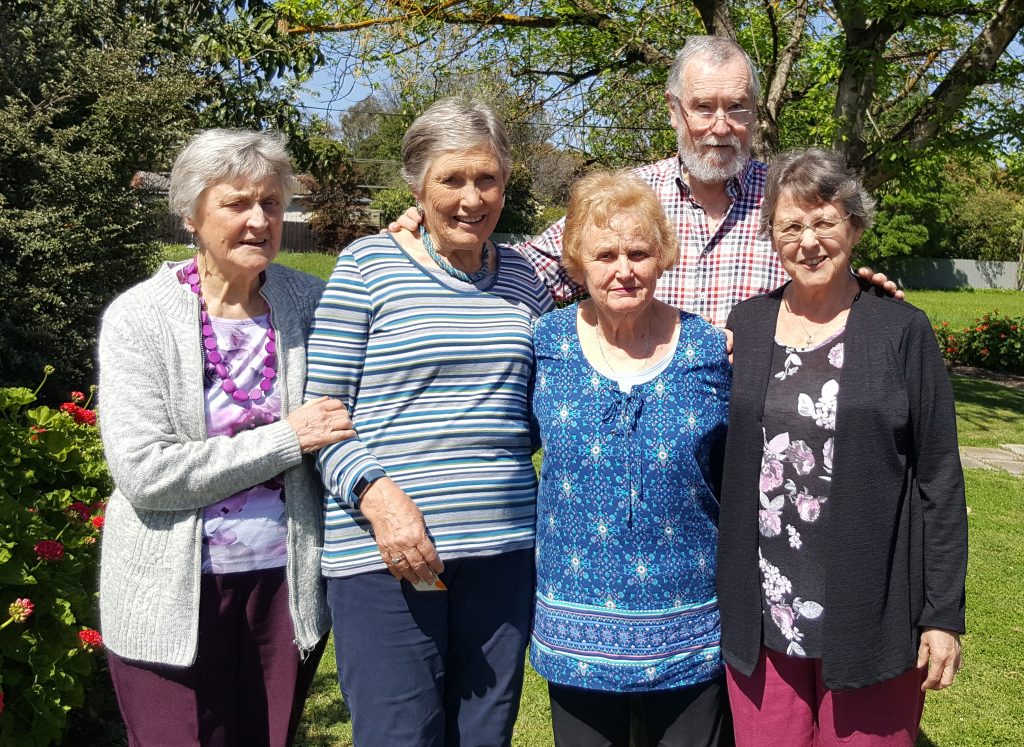
Jenan Taylor
22 July 2022
For those most in need, the Emmaus Christian Community offers more than low cost housing.
In the Emmaus housing complex wide tree-lined roads, and landscaped parkland frame modern town houses, garages and private yards where families can gather for barbecues.
It could be any Australian neighbourhood.
And that’s exactly the way the members of South Croydon Anglican church, who developed Emmaus, conceived of it.
Vicar the Reverend Bruce Bickerdike says the houses are built so that they blend into the surrounding suburb.
“If you walked along the street, you wouldn’t know what was a private house, and what was part of the affordable housing,” Mr Bickerdike said.
He said the housing scheme came about after a group of parishioners raised money more than 40 years ago to buy vacant farmland that had sat behind the church.
They had always wanted to do something to help change things for the needy in the community, so they set their sights on building affordable housing.
But it took more than two decades for their vision to come to fruition, Mr Bickerdike said.
Along the way they sold off some of the land to private buyers, and learned to negotiate with the local council and real estate organisations.
The parishioner group also separated themselves financially from the church to become Emmaus Christian Community Incorporated, then partnered with Jubilee Housing, a Baptist church-led housing management body.
The partnership enabled Emmaus to secure government funding and in 2004 they built 19 units at the site.
Having no formal knowledge or experience of running a housing organisation, the parishioners handed the management of the estate to Jubilee Housing who did have the necessary grounding.
Mr Bickerdike, who has also been the chair of Emmaus Christian Community for the last eight years said the individuals and families who qualified for their units had to be on a social housing list.
But vacancies tended to come up only if a householder happened to pass away, or as had been the case with one migrant family, if they left because their circumstances changed enough for them to afford to buy a house.
He said the parishioners were pleased that the complex was small in scale and that that had always been their goal.
That way its residents would not feel hemmed in, as opposed to how they might feel in some government style housing schemes that focussed on high density living with 80 to 100 units.
He believes Emmaus’s community environment helped the residents to feel more settled and, likely, much better about their situation and their lives.
But nucleus to that was the Emmaus pastoral care team that offered them further support.
Read more: Rental housing shortage hardest on those on income support
South Croydon Anglican parishioner Jessie Glover has been a pastoral care team member for close to 10 years and says its support varied according to the needs of the different households.
Ms Glover said care ranged from organising social afternoons where residents and church goers cooked and shared favourite traditional foods to helping migrant and refugee families with English language speaking, reading and writing lessons.
One of the members had developed a fortnightly coffee date relationship with a householder, while another had formed a close bond with a senior gentleman who had been terminally ill.
“He was exceptionally negative and quite broken but our parishioner took him to doctor’s appointments and just walked alongside of him, just hung on. And finally, that man just really came to trust him. He didn’t come to faith, but he certainly came to realise that God was good,” Ms Glover said.
She said that because the residents would often use a shortcut through the church property to get to buses, schools or shops, there had always been someone on site to just say hello or be a listening post if a householder needed it.
She also said that although outreach was a large part of the church’s ministry, their care wasn’t necessarily evangelistic unless the tenants themselves wanted to know about Christianity.
But the pastoral team was particularly thrilled that some of the residents were themselves beginning to look out and care for one another.
“That had been one of the visions, that those who’ve been there long term would get to know and trust one another,” she said.
Ms Glover believes she’s gained an awareness of how tough people’s lives can often be, and how that results in a certain brokenness of spirit or loss of hope.
“It can be very hard to turn that around,” Ms Glover said. “And yet they’ve come to know that they are in a secure place here. And they’ll never be kicked out unless they want to leave.”
Mr Bickerdike believes the Emmaus model was one that other Anglican churches could adopt if they wanted, but they needed to be patient about working through it because of the time and negotiations it would take
For him, the pastoral care component was significant in offering church housing.
“It’s not just building buildings and then handing it over to some commercial arrangement or non-profit organisation,” he said.
“It’s really important that people see this as a real opportunity to live out what it means to love others in the name of Christ, so that’s why pastoral care is a key ingredient.”
For more faith news, follow The Melbourne Anglican on Facebook, Twitter, or subscribe to our weekly emails.






